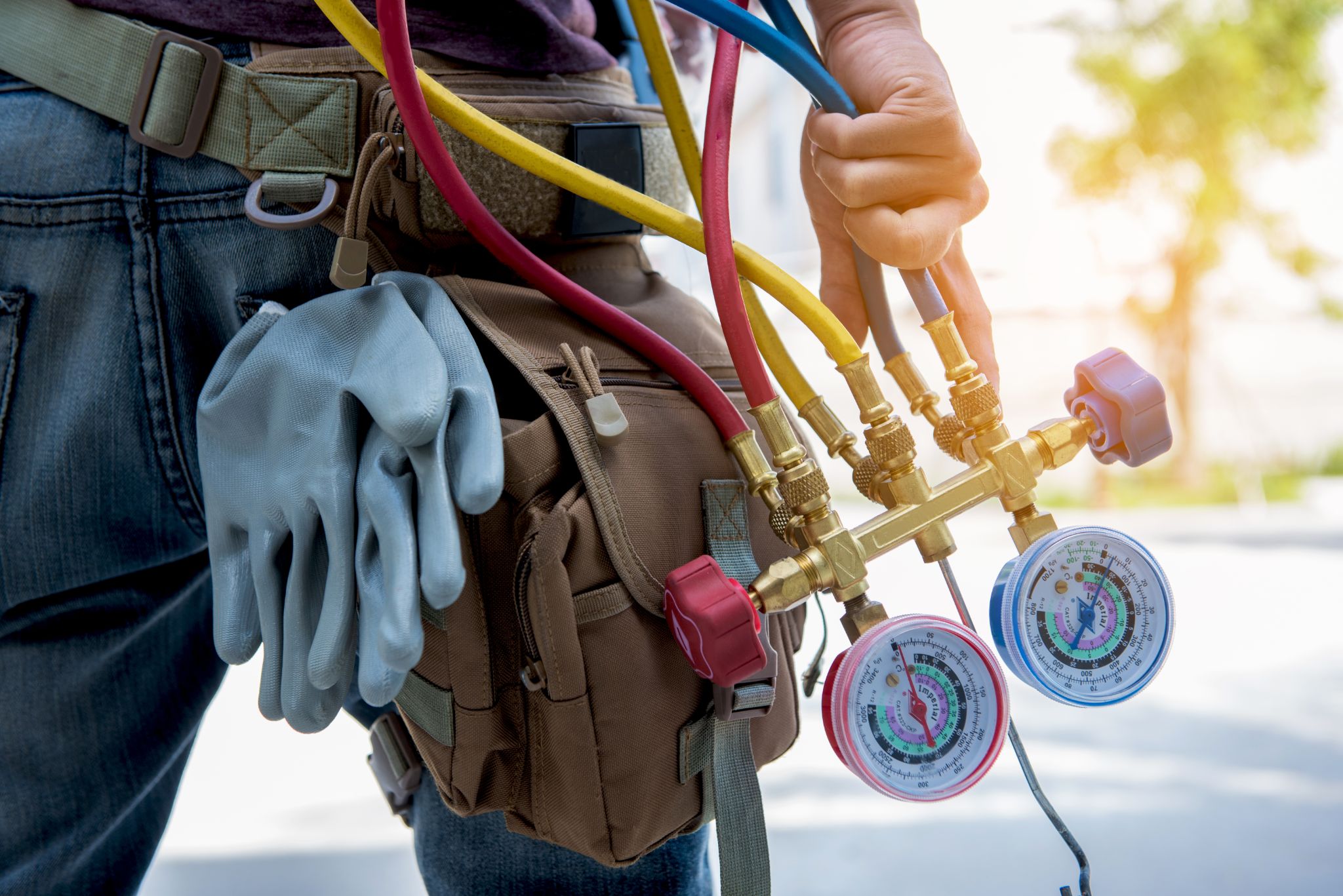How Often Should You Service Your HVAC?

Most homes have heating and air conditioning systems installed. These might be a split system where one part is the furnace and the other part the central air conditioner. They could be a packaged system that functions as an air conditioner in the summer and a heating system in the winter.
Since you essentially have two different systems for heating and cooling, regardless of the type of HVAC system you have installed, ideally you want to service your system twice a year to ensure each part of the system is operating optimally.
What happens if you do not service your system?
Several things can happen when you do not get regular maintenance. Most heating and air conditioning systems are designed to last about 15 years or so. Without maintenance, you are potentially putting more wear and tear on your system, which shortens its overall lifespan.
As your system works hard to heat or cool your home, it also starts using more energy to do so. Systems that are not maintained quickly become less efficient. Your heating or cooling energy costs and utility bills will gradually increase. You will also notice the system is running longer to maintain your ideal indoor air temperatures.
Most importantly, you are taking a risk that your heating system or air conditioner is not going to break down unexpectedly. The longer your system goes without maintenance, the more likely something will go wrong, so it is not a matter of if, but when, which could include:
- System Parts Overheating – Many parts inside the system need regular lubrication to keep working correctly and prevent excess friction that can lead to overheating.
- Clogged Air Vents – Dust and dirt can clog air vents and cause the system to work harder. A lack of sufficient airflow can also cause the system to overheat and fail prematurely.
- Dirty Condensation Coils – These coils are on your AC unit and help to remove the hot air from your home and provide it with cold air. These get dirty. When they are, they cannot function properly.
- Clogged Drain Lines – There is a drain line on AC units that allows condensation to drain away. When the line clogs, it can cause it to back up inside the system, increasing risks of electrical problems or it seeping into your home, causing water damage.
- Loose Electrical Connections – Your heating unit and cooling unit are working pieces of machinery that vibrate. Over time, electrical connections can come loose. When they do, they can cause your system to malfunction, short out, or overload major components.
When is the best time to schedule HVAC maintenance?
The best time to schedule maintenance for your HVAC unit is in the spring for your air conditioner and the fall for your heating unit. You want to make sure your AC will be ready to cool your home, come the hot Texas summers, so spring is a great time since HVAC technicians are not as busy as they are in summer.
In the fall, you want to make sure your heating system is ready to go once those colder winter temperatures roll in and you need to switch your heat on. Again, HVAC technicians are typically not that busy in the fall but are very busy once cold weather arrives.
What is done during HVAC system maintenance?

In the spring, your HVAC technician will be focusing primarily on your air conditioning unit and will perform the following tasks:
- Overall Inspection of the AC Unit
- Testing the Condenser
- Inspecting and Cleaning the Condensing Coils and Evaporator Coils
- Inspecting the Electrical Wiring
- Cleaning the Drain Line
- Testing the Refrigerant Levels
- Testing the System Operating Pressures
- Testing the Start-Up and Cycle Times
- Checking the Air Filter
If the fall, your HVAC professional will focus on your heating unit and perform the following tasks:
- Overall Inspection of the Heating Unit
- Inspecting and Testing the Heat Exchanger, Burner Assembly, Heat Pump, etc.
- Testing the Start-Up and Cycle Times
- Inspecting the Electrical Wiring
- Cleaning the Heat Exchange, Burner Assembly, etc.
- Checking the Air Filter
- Testing the Backup Heating Source on Heat Pumps
- Testing the Piping and Gas Lines on Gas Systems
Please keep in mind that the system maintenance performed can and does vary based on the type of heating and air conditioning system you have. With regular preventative maintenance, your HVAC system will last longer, operate more efficiently, and be less prone to breakdowns.
For further information about HVAC maintenance and maintenance plans or to schedule maintenance service for your system in San Antonio, Temple, New Braunfels, or the Austin Metro area, please feel free to contact Christianson Air Conditioning & Plumbing by calling 512-246-5400 today!



Sorry, comments for this entry are closed at this time.